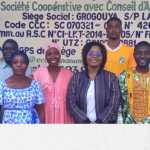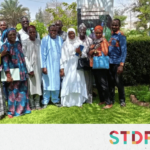Certification bodies adapting to the crisis
- 10/04/2020
- Posted by: Gaetan Dermien
- Category: Uncategorized
In addition to the current emergency procedure for certificate extension published on 26 March, GLOBALG.A.P. is developing a new “Integrated Farm Assurance (IFA) Remote” system to meet the growing need for initial certification and re-certification based solely on remote inspections and audits. The solution will apply to all GLOBALG.A.P. standards, and will be available for the duration of the COVID-19 crisis; however, it probably will not be Global Food Safety Initiative (GFSI)-recognised. IFA Remote will run in parallel with the regular IFA standard, and IFA Remote certificates will be clearly marked to inform all market participants that they are based on remote inspections and audits.
GLOBALG.A.P. is establishing IFA Remote in consultation with various stakeholders, including market participants, certification and accreditation bodies, and other representatives, and will shortly issue the initial draft of the IFA Remote system, and an invitation to join the public consultation.
Ecocert has published answers to a series of questions about remote audits. While the certification body has always considered field audits as an irreplaceable tool, inextricably linked to high-quality certification, remote auditing means it can deliver an adjusted level of guarantee, adapted to this exceptional crisis. However, Ecocert is clear that COVID-19 will not cause on-site audits to disappear – as soon as the situation allows, an adjusted field audit plan will be put in place to cover possible risks identified during the remote audit. In addition to the quality of information observed, collected and verified, field audits are also a way of maintaining a powerful human link between the certification bodies and the companies they certify. Ecocert says it will endeavour to ensure that its auditors return to meet each producer and company it certifies, anywhere in the world.
The Sustainable Agriculture Initiative (SAI) Platform (31 March) has communicated temporary measures to all of its approved Verification Bodies to ensure minimal disruption to the audit process. The timeline for the updated Farm Sustainability Assessment, FSA 3.0, which originally aimed for a soft launch at the end of 2020 and full roll-out in 2021, is now under review.
Sedex (Supplier Ethical Data Exchange) has issued guidance on managing labour standard compliance and the impact of COVID-19 on SMETA (Sedex Members Ethical Trade Audit), recommending that members delay audits for the time being to support containing spread of the virus. Sedex is also publishing solutions for building resilient supply chains and protecting workers during COVID-19 disruption. Alternative and more flexible methods to uphold due diligence that will be piloted in the coming weeks include virtual assessments of sites (while not full SMETA audits, they enable businesses to continue to protect workers during times of significant disruption); direct worker reporting; and enhancing the use of desktop verification for follow-up audits.
Sedex is also considering a COVID-19 Impact Assessment methodology for assessment of sites to specifically address prominent issues occurring due to the disruptive health, safety and economic impacts of the outbreak. The assessment would have a limited scope audit focusing on areas directly of importance post-outbreak – health of workers, hours and wages (including statutory benefits), unauthorised subcontracting, responsible recruitment (including child labour) and restrictions on freedom of association.

![EU and GB approval changes (January-March 2025) 9-FFM+-[ENG]](https://news.colead.link/wp-content/uploads/2024/06/9-FFM-ENG-150x150.jpg)


